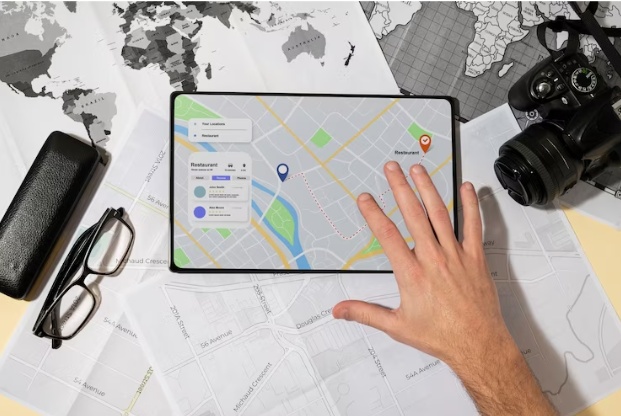In a world that thrives on connectivity and access to information, effectively tracking and managing assets has become crucial for both businesses and individuals. This is where GPS asset tracking comes into play. A technology that allows real-time visibility and control over assets such as vehicles, equipment, and valuable cargo. In this article we will explore the realm of GPS asset tracking shedding light on its importance, various applications, and the multitude of benefits it offers.
The Essence of GPS Asset Tracking
GPS asset tracking relies on satellite technology to monitor the location, status, and movement of assets over time. It involves installing GPS devices on the assets of interest that transmit data to a software platform accessible through computers, smartphones, or tablets. This innovative technology has transformed asset management by providing an approach driven by data. and companies like Cellutrak.ca have been at the forefront of offering cutting-edge solutions in this field. With their expertise and advanced tracking systems, they have helped businesses and individuals alike harness the power of GPS asset tracking for enhanced security, improved efficiency, and cost savings.
Applications Across Industries
GPS asset tracking finds applications, across a range of industries;
Fleet Management:
Transportation and logistics companies greatly rely on GPS tracking for operations.
GPS asset tracking offers advantages in industries. It provides real-time location data allowing for optimized routes, improved fuel efficiency, and timely deliveries.
Construction and Heavy Equipment:
In the construction and heavy equipment sector GPS tracking helps construction firms monitor machinery and equipment reducing the risk of theft and optimizing asset allocation.
Agriculture:
In agriculture GPS tracking aids in monitoring farm equipment and vehicles. This enables resource management and crop monitoring, for productivity.
Cargo and Shipping:
The shipping industry heavily relies on GPS tracking to track container shipments, prevent thefts, and effectively manage inventory.
Utilities:
Utility companies utilize GPS asset tracking to maintain inventories of infrastructure assets like utility poles, transformers, and pipelines.
Personal Assets:
GPS asset tracking benefits individuals who want to keep track of personal assets such as boats, recreational vehicles, or expensive electronics.
Key Benefits of GPS Asset Tracking
Given below are some key benefits of GPS Asset Tracking:-
Enhanced Security:
The key benefits of implementing GPS asset tracking include enhanced security against theft or unauthorized use. Real-time alerts can notify users of any activity or movement regarding their assets.

Improved Efficiency:
Furthermore by utilizing data-driven insights provided by GPS asset tracking systems businesses can optimize asset usage, reduce downtime periods for maintenance or repairs, and enhance resource allocation for improved efficiency.
Cost Savings:
Implementing GPS asset tracking solutions also contributes to cost savings by streamlining routes, for transportation purposes. It minimizes fuel consumption while extending the lifespan of assets through maintenance strategies.
Compliance and Reporting:
Additionally, easy report generation functionality integrated into these systems allows businesses to effortlessly comply with regulations while fulfilling auditing requirements. Real Time Visibility; Gain knowledge of the whereabouts and current condition of assets at any given time enabling swift decision making.
Increased Productivity:
Ensure that assets are deployed efficiently and employees are working productively ultimately boosting productivity.
Challenges and Considerations
While utilizing GPS asset tracking presents a multitude of advantages it is crucial to address hurdles. These may include investment expenses, concerns regarding privacy, and the need for maintenance of tracking devices. Additionally understanding the ethical aspects related to asset and personnel tracking is of importance.
Conclusion
In an era where effective asset management can make or break a business GPS asset tracking has emerged as a technology. Its capability to provide real-time location data enhances security measures. Optimizing asset utilization is truly invaluable. Whether you are a business seeking to improve efficiency or an individual safeguarding investments GPS asset tracking offers a versatile and highly efficient solution. As technology continues to progress we can anticipate more innovative applications and benefits from this transformative technology in the years ahead.